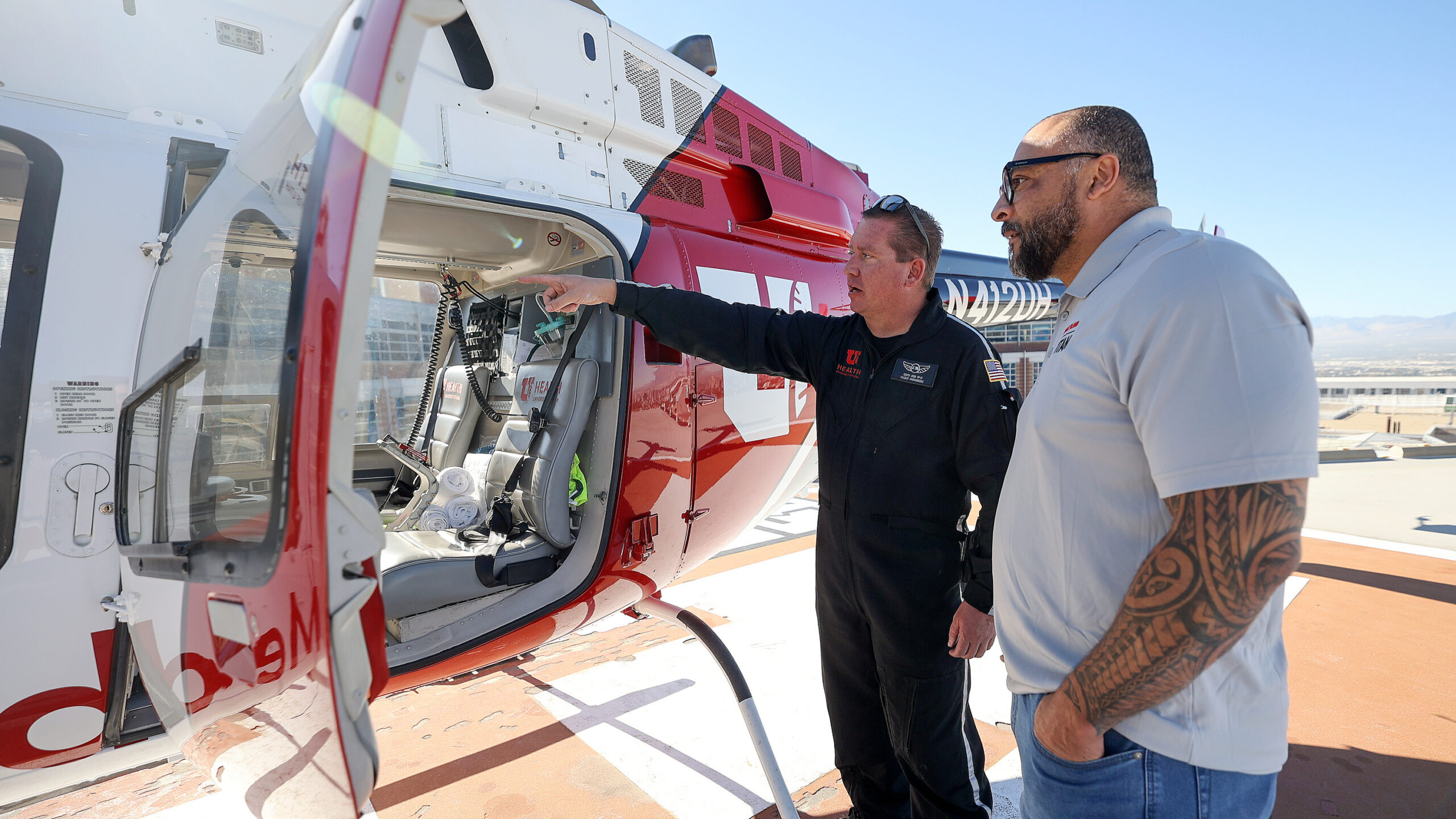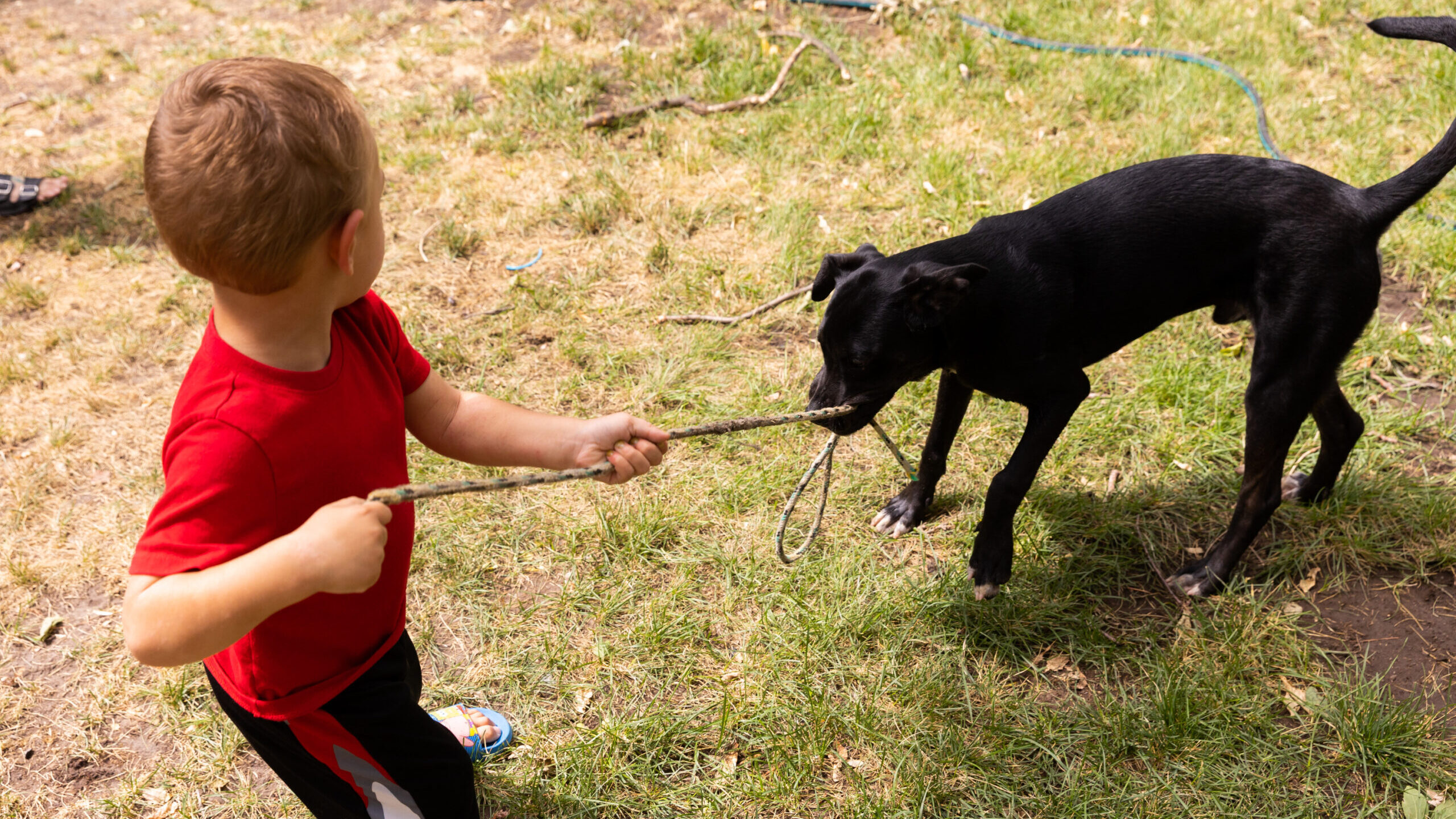New whole blood transfusion program coming to U of U
Oct 20, 2023, 7:30 AM

Cory Cox, University of Utah Health AirMed flight paramedic, shows Bill Schuffenhauer, Olympic silver medalist in bobsledding and Whole Blood Titan donor, the inside of an AirMed helicopter during a press conference to announce ARUP Blood Services' new Whole Blood Titan program for Type O blood donors at the University of Utah Hospital helipad in Salt Lake City on Wednesday, Oct. 18, 2023. (Kristin Murphy, Deseret News)
(Kristin Murphy, Deseret News)
SALT LAKE CITY — Whole blood transfusions, a life-saving procedure once reserved only for the military, are now part of the University of Utah Health’s arsenal.
U of U Health and its partner ARUP Blood Services announced the program rollout on Wednesday. They are calling it the “Whole Blood Titan Program.” It’s where local o-blood donors remain on standby for emergency transfusions.
According to the American Red Cross, whole blood is “simply the blood that flows through your veins.” It’s the most flexible type of donation because the blood is not broken down into three component parts like is standard practice.
The hospital and ARUP encourage donations from people with O-positive and O-negative blood types. That’s because o-blood is low-titer and has low levels of ABO antibodies which are ideal for emergency transfusions.
The program will be available to the hospital’s Neonatal Intensive Care Unit and the University of Utah AirMed.
The first donor on the list
The first “titan” on the list ready to donate is retired Olympian and Salt Lake City Winter Olympics silver medalist Bill Schuffenhauer. He survived a tragic accident thanks to blood donors.
“My surgeon said you are one lucky guy. You lost more blood than any other human I know, and you shouldn’t be here today,” Shuffenhauer said … “He says that was all because multiple people donated blood to you so you can be here.”
Whole blood transfusions were proven effective with military application and are becoming nationally recognized in emergency situations.
“You know, it took me a little while to understand the importance of service, not only worldwide but specifically in my community,” Shuffenhauer said. “And when I had the opportunity to simply donate my blood to people even though I don’t know any of them, and may never know any of them, I know it’s going to a really good cause to potentially save someone’s life or multiple people’s life.”
Get involved here.
Related stories:













